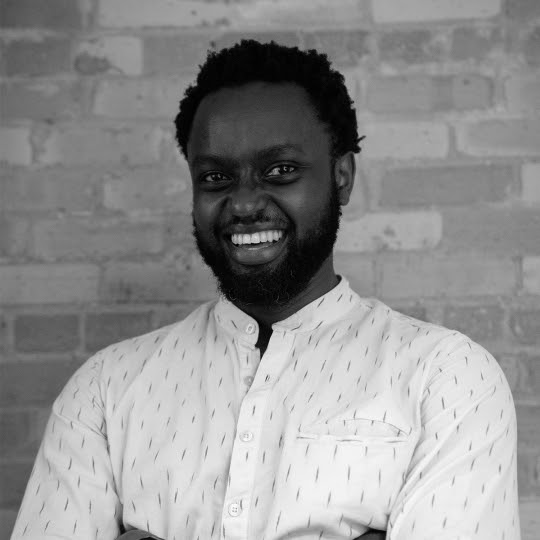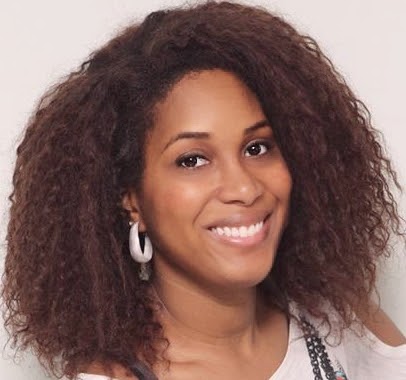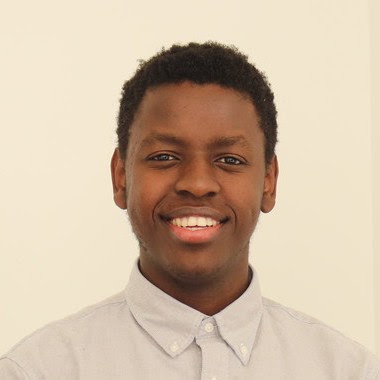By now, most of us have felt the impact a global pandemic can have on our everyday living. Individuals, small businesses and global economies alike are already feeling the amplitude of the repercussions that have come with the COVID-19 virus.
Despite the chaos this virus has created, several DMZ companies (current and alumni) are pushing their traditional boundaries and devoting additional time, money and resources to help those in need. Some startups are cutting platform subscription fees for small businesses, while some are forming charitable partnerships within the community. Others have staff working around the clock to build new functionality to save customers millions of dollars.
Kudos to these DMZ companies who are placing values before profit during this time:
AirMatrix
Drones are becoming a major part of our transportation system. AirMatrix provides the infrastructure technology to help cities effectively navigate drones in the sky. The startup’s platform gives enterprises and local governments a layered grid system by building precise highways in the sky to create safe, scalable and efficient transportation systems in high-dense areas.
The COVID-19 pandemic has brought urgent use cases for drones in cities around the world, meaning AirMatrix’s technology will be integral in enabling and scaling drone operations needed to combat the spread of the virus in Canada. The company has already mapped and developed a significant network of skyroads in the downtown core of Toronto, Montreal and Ottawa. AirMatrix is working with government to deploy their technology, which will be critical in flattening the curve and stopping the spread of infection.
Clout Jam
Clout Jam is a business management platform that specifically serves independent influencers, equipping creators with the right tools to prosper in business and thrive in life. In response to the current COVID-19 crisis, co-founders Trevor Mengel and Samantha Cutler have jump-started a unique campaign, #CloutForGood. This new initiative is designed to connect all types of influencers with pro-bono opportunities to help raise awareness of many Canadian charities, particularly those on the front line of the fight against COVID-19. Already, #CloutForGood has received notable attention from the community! Several charities have jumped on board to partner with Clout Jam, including Food4Kids, Foodbanks Canada, and UNICEF Canada, with new non-profits joining daily. Canadian influencers participating in #CloutForGood include: @drea_wheeler, @sashaexeter, @caleighfit, @carlingliski, @haylesbeth, @bylaurenp, @alessiasculpt and (of course) @thefitfatale, run by co-founder Samantha.
Get involved! Influencers and registered non-profit organizations can participate in #CloutForGood by signing up at cloutjam.com/cloutforgood or contacting trevor@cloutjam.com.
Crowdmark
Crowdmark’s collaborative grading and analytics platform helps teachers more effectively evaluate student work. With the abundance of school closures taking place as a result of COVID-19, Crowdmark has recognized the impact this will have on their community of students and educators.
That’s why Crowdmark has decided to offer FREE access to its grading and analytics platform to any institution that needs to move exams and homework online – even if the institution is not currently a customer! The company has also created a web page of resources available to educators, which will help institutions move exams online with Crowdmark.
Crescendo
Crescendo is helping business leaders run remote teams of staff in a meaningful way. Crescendo’s goal is to make Diversity & Inclusion learning personalized, accessible, and measurable – and that doesn’t stop just because teams are working remotely! The tech startup empowers its customers to improve diversity and inclusion outcomes through scalable software and a personalized D&I learning Slack integration. Marginalized and vulnerable populations will inevitably be the hardest hit by effects of COVID-19, so Crescendo has made its D&I learning platform FREE for the next 6 weeks. This means businesses can be equipped with the right tools to scale their D&I strategy while enabling remote employees to practice inclusivity. Additionally, Crescendo has launched a comprehensive D&I guide for managers and employees.
Drizti
As a company that has set out to improve the supercomputing experience for innovators globally, it’s no surprise that Drizti is ahead of the game in supporting researchers who need it most right now. The speed and legitimacy of COVID-19 research is high-priority right now, and Drizti is taking actionable measures to help organizations such as endCoronavirus.org educate in order to end the outbreak. To show appreciation for the work that’s being done, Drizti has offered researchers their Supercomputing and High Performance Computing (HPC) expertise to help speed up the research and design of equipment.
Embodia
Embodia, Canada’s largest online education platform for Physiotherapists, has been a key leader during this global pandemic. With mass closures to physio clinics, Embodia’s tools are here to help practitioners continue serving their patients! The tech company has announced a FREE Telehab Solution, allowing Embodia members to keep their virtual office lights on and continue business as usual. This free solution pairs well with Embodia’s digital home exercise program software, giving patients an optimal at-home experience and path to recovery.
FitDrive
As social distancing has become the new norm for most people, the fitness industry has inevitably faced consequences. How do fitness trainers, who rely so heavily on close social interaction, adapt in times like these? Luckily, FitDrive has been in the remote training space for a long time! FitDrive’s software helps trainers and gym owners digitize their business via an app with easy-to-use client management tools and one-click workout sharing.
To help trainers go digital during COVID-19, FitDrive is making many of its services FREE, including one-on-one business consultations (booked through the website) and a 60-day trial of the app which allows fitness trainers to create, share and track workouts with clients at no cost. Additionally, FitDrive is hosting a webinar on March 30th that will help trainers leverage technology to keep clients engaged and revenue stable during these turbulent times.
GrowthGenius
GrowthGenius helps small B2B companies source meaningful customer leads via a smart sales development technology and powerful database of over 200 million contacts. In light of COVID-19 self-isolation advisories, sales teams feel more challenged than ever – selling remotely is no easy feat. That’s why GrowthGenius is complementing its technology with additional support from its own expert team. The GrowthGenius team has created an Extrovert Support Line – the expert team is readily available to answer questions on how businesses can maintain relationships with customers and leads. GrowthGenius is helping customers put the ‘social’ back in ‘social distancing’!
Hopeful Inc.
Hopeful’s cost-effective platform supports non-profit organizations (NPOs) by providing a cost-effective, user-friendly tool that allows NPOs to track collected data, analyze social media engagement and receive actionable insights on marketing strategies. Between COVID-19 and a declining economy, Hopeful is seeing immense pressure on NPOs like never before. During times of economic hardship, people look to non-profits for services – and simultaneously, non-profits aren’t seeing as many donations. Due to increased social distancing, fundraising events, which are huge revenue drivers, are causing NPOs to turn towards online channels to raise funds.
That’s where Hopeful can help! The company is using data analytics to help NPOs discover what social media strategies are working and create content that will lead to more funds. To help deliver on this, Hopeful is offering FREE access to NPOs that are at the frontlines of the COVID-19 fight for 60 days.
Inkblot
With the growing complexity of a global pandemic, it’s important to recognize that there will not only be implications on individuals’ physical health, but also their mental health. InkBlot’s platform, which connects clients to mental health professionals, has been essential in a world that is now depending on virtual services. Recognizing that people would be reaching out for additional mental health support, Inkblot has decided to waive its onboarding and platform access fees until June 30. Inkblot counsellors are available as early as today. Beyond this, Inkblot is offering FREE 30-minute, fully-guided meditation sessions by video, which can be accessed via the company’s website.
Inkbox
Companies who aren’t typically in the business of creating healthcare products have been stepping up to the plate to provide frontline workers with materials to protect against contracting COVID-19. Inkbox, a semi-permanent tattoo startup, has been recognized as a true leader throughout this pandemic. The startup altered its operations to begin manufacturing personal protective equipment (PPE) for Toronto’s essential workers. To keep communities safe, Inkbox has already produced and donated 100 face shields – and is ramping up materials to begin producing 10,000 sheilds per week in May!
Beyond face shields, Inkbox is also manufacturing hand sanitizer, cloth masks and semi-permeable wound dressings, all of which have been in high demand from essential workers.
Layla Care
It’s common for people to have heightened feelings of stress or anxiety during a pandemic. As a mental health service, Layla Care wanted to do their part to help the community manage the negative emotional impacts of isolation.
Over the next two weeks, Layla’s Supportive Counselling for COVID-19 Stress program offers a one-time, FREE of charge counseling service to support Ontario residents struggling with stress. Through phone or video chat, licensed therapists will consult with Ontarians in need on various topics ranging from anxieties driven by uncertainty around daily life and financials to worries about health or the health of loved ones.
LiveGauge
LiveGauge offers real world marketing ROI solutions to help brands and agencies analyze marketing spend via an automatic, consistent and objective measurement solution.
Using their own automated solution for passive population measurement, LiveGauge saw the opportunity to develop a COVID-19 tracker. The team has been working diligently to develop an app-based solution to help enforce social distancing, track the historical path of confirmed cases, and communicate who in the community may have been exposed to carriers.
LiveGauge’s first release of this contract-tracing app is set for the first week of April. Stay tuned for more updates! This digital solution will undoubtedly contribute to flattening the COVID-19 curve.
Nimbus
Nimbus is changing the way higher education institutions facilitate online learning. With custom-branded digital solutions to help administrators increase student engagement, the Nimbus platform allows universities and colleges to build, modernize and centralize tutoring and mentoring programs.
To serve higher education institutions and students during this time, Nimbus Learning will be offering FREE access to their online tutoring platform to all partners, old and new, throughout this spring and summer! Nimbus is welcoming educational organizations that are not already using the platform and could benefit from support in developing a campus tutoring program to reach out.
Off2Class
Education management company, Off2Class, offers an extensive ESL Teacher Toolkit for schools and individuals who want to teach ESL online. With the need to find virtual options for in-person classes and tutoring sessions, Off2Class gives teachers and students a place to interact for mobile learning while maintaining social distance. With the current state of COVID-19 in mind, Off2Class has announced they are re-activating FREE trials for anyone who has ever signed up for an account – within their 6-year history! ESL educators should feel more empowered than ever to build their online business.
OnCall
OnCall Health helps healthcare organizations launch and scale their own virtual care programs, and has demonstrated its commitment to helping the community during the COVID-19 outbreak. In response to the ongoing healthcare crisis, OnCall has released a FREE COVID-19 Self Assessment tool for all providers to use with patients. By utilizing the Self Assessment tool, providers can ensure that they are taking the necessary precautions to keep patients and their communities safe during this time.
Peekapak
Peekapak’s e-learning platform primarily helps elementary students practice social-emotional skills. Through interactive gaming and personalized learning experiences, Peekapak’s leading curriculum teaches kids key social-emotional skills such as self-regulation, teamwork, and empathy. In response to the COVID-19 outbreak and the closure of schools globally, Peekpak wants families to feel supported during this time of uncertainty. Now, the company is offering FREE three-month access to their entire platform of resources to schools and districts impacted by closures. Additionally, the company has compiled a list of educational resources that will help students and families during this particularly difficult time.
PheedLoop
COVID-19 has shaken the events industry – conferences, trade shows, and social gatherings worldwide have virtually come to a halt. PheedLoop, a company offering next-generation event management software, is acting fast to help event organizers power through the current crisis. Working in urgency to save the events industry, the company took on a challenge to accelerate the release of their new integrated live streaming platform, which is built into their robust event app, speaker portals and admin tools.
This newly launched live streaming functionality is now ready to be used by event organizers! In additional efforts to show commitment to the industry, Pheedloop is offering discounts to planners whose events have been directly affected by the COVID-19 spread.
PocketHealth
PocketHealth has seen an increased demand for its digital offerings since the start of COVID-19. Their product helps hospitals replace outdated systems of how medical images are given to patients. Formerly, hospitals like St. Michael’s in Toronto and Hamilton’s McMaster Childen’s Hospital would burn images onto a CD, which patients would then have to physically retrieve. This process was more demanding of the staff’s time and resources.
With PocketHealth’s platform, patients can now virtually receive and instantly access health records like MRIs, CT scans and X-rays. Since non-essential hospital visits have been limited due to COVID-19 restrictions, PocketHealth’s technology has needed now more than ever. Institutions are increasingly coming to recognize the need for this virtual method – so much that the company’s monthly deployments have jumped by more than 300 percent! As a result, PocketHealth has raised US$6.5-million in funding this month.
Portl Media
Portl’s platform delivers interactive content to rideshare passengers. Thousands of rideshare drivers for apps like Lyft and Uber have installed tablets to host Portl’s entertainment system, which doubles as an effective advertising platform. Marketers can benefit from highly-engaged consumers in this environment – the average ride time within a big city like Toronto is 17 minutes. During this difficult time, Portl has made changes that will allow advertisers to leverage the platform, but only for the greater good of making a difference during this pandemic. The startup is offering FREE ad space on screens throughout Toronto for all organizations that have a positive message regarding COVID-19.
REMITR
REMITR is a FinTech startup that offers small businesses a better alternative to bank wire transfers: a cost-effective, secure and non-stop global payment system.
REMITR has always championed entrepreneurs and small businesses, and they’re doing it again by offering all customers (existing and new) Zero-Fees for international AND domestic payments. All payments made via REMITR will be free of transaction fees up to April 30th. Click here to learn more and avail of this benefit.
Spiffy
It is inevitable that the restaurant industry will take a huge hit as operations are significantly scaled back to adhere to social distancing protocols. Spiffy’s modern e-learning platform helps small businesses in hospitality build more profitable operations via custom staff training modules, an engaging content library and robust reporting analytics. Spiffy recognizes that many of its customers will have difficulty weathering the COVID-19 storm. The tech company has made the decision to make their remote training platform FREE for the time being, encouraging restaurants to maintain productivity while still meeting health and safety guidelines.
Squiggle Park
Squiggle Park is a game designed to deliver content in a way proven to help kids master foundational reading skills. The Halifax-based platform is built by literacy experts and teachers to align with classroom curriculum – but is also designed to be fun for kids. While Squiggle Park’s content is designed for early learners aged 3 to 8, the company recently announced a new version of the game, Dreamscape, that is appropriate for kids aged 8 to 15.
Since COVID-19 has taken kids out of school, Dreamscape launched a partnership to get more kids excited and learning during an otherwise dreary time. The company partnered with Canadian Premier League soccer team, the Halifax Wanderers, to produce special content packs that feature stories about the team’s players, staff and club mascot. Kids can read the stories and are tested to earn rewards or receive the resources they need to improve their learning. The Wanderers’ players wrote the stories, which were then edited by educational experts to align with the Nova Scotia curriculum.
Trufan
Trufan’s leading social intelligence platform helps brands maximize the value they get from their audience and allows them to activate grassroots communities made up of super fans and micro influencers. As a purpose-driven startup, Trufan felt an obligation to respond to the COVID-19 crisis and provide whatever support they could to small businesses during this time – especially since consumer social media usage has gone drastically up.
To help brands leverage consumer engagement and grow online, Trufan has announced they will be offering a FREE 45-day trial on SocialRank, an audience segmentation tool, to startups and small businesses with less than 25K followers! Companies using Instagram or Twitter who would like to access the trial can get started by completing this short survey.
Ulula
For all types of organizations, measuring the health and well-being of employees can be challenging during a time like this. Ulula’s stakeholder management product connects businesses, workers, communities, and governments to de-risk operations and create value across global supply chains. To help organizations measure and mitigate the implications of COVID-19 on employees, Ulula has designed a tailored solution: the employee and worker impact assessment. This digital assessment tool will allow employers to take a rapid pulse on the workforce through indicators like worker mental health, perception of job protection, and more! Best of all, they’re offering the first assessment for FREE!
UXPLORE
UXPLORE’s platform helps organizations become more efficient and create economic value by augmenting human capabilities through automation solutions. The startup sees a future where rule-based and repetitive work tasks can be automated through an Intelligent Digital Workforce (IDW) that emulates human behaviour. UXPLORE’s IDW can be deployed as a practical solution for several use cases to improve efficiencies – including human resources, finance and accounting. Digital Workers can complete day-to-day repetitive tasks like managing and supporting customers, completing routine transactions such as order and ticket processing, and other time-consuming activities crucial for business continuity.
With the need for companies to work remotely due to ongoing physical distancing guidelines, UXPLORE is providing organizations with virtual capacity in the form of Smart Assistants and Digital Workers. UXPLORE recently announced they’re offering organizations FREE access to Maya, a new Smart Assistant built with AI technology that helps individuals find relevant and timely information related to COVID-19.
The DMZ wants to thank these startups who are stepping up to support others during uneasy times in the world. What is your business doing to support your customers or community? Let us know at dmz@torontomu.ca.

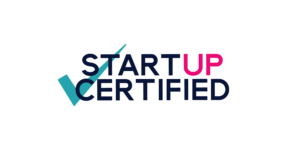 I was a student working at Ryerson’s Legal Innovation Zone Law Practice Program in the same building as the DMZ. By working at the front desk, I was introduced to startups, and through that, I was connected to the Sandbox.
I was a student working at Ryerson’s Legal Innovation Zone Law Practice Program in the same building as the DMZ. By working at the front desk, I was introduced to startups, and through that, I was connected to the Sandbox.  Before that placement, I had been working for the government for six years. I ran into the “red tape” problem – something that you hear about, but don’t believe it until you see it. I figured that there has to be a faster way and a better way for me to have an impact. I turned to startups. It seems to really be the best way to change something in the world.
Before that placement, I had been working for the government for six years. I ran into the “red tape” problem – something that you hear about, but don’t believe it until you see it. I figured that there has to be a faster way and a better way for me to have an impact. I turned to startups. It seems to really be the best way to change something in the world. We help companies expand their hiring pools. One of our companies is Maple Lodge Farms in Brampton. We helped them hire their first employee from Scarborough, which is really not a possible transit route if you don’t have a car, right? That’s the value we add to the companies.
We help companies expand their hiring pools. One of our companies is Maple Lodge Farms in Brampton. We helped them hire their first employee from Scarborough, which is really not a possible transit route if you don’t have a car, right? That’s the value we add to the companies. For the first couple of months, everyone was just trying to figure out their place in this world now. We took that time to help those in need. We realized we weren’t going to generate revenue for at least a few months, so we figured we might as well do something productive with the time and help out.
For the first couple of months, everyone was just trying to figure out their place in this world now. We took that time to help those in need. We realized we weren’t going to generate revenue for at least a few months, so we figured we might as well do something productive with the time and help out. 




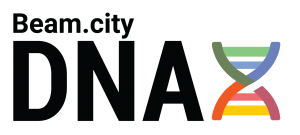 Zeze Peters, Founder & CEO of
Zeze Peters, Founder & CEO of  Kate Mansouri, Founder & CEO of
Kate Mansouri, Founder & CEO of 
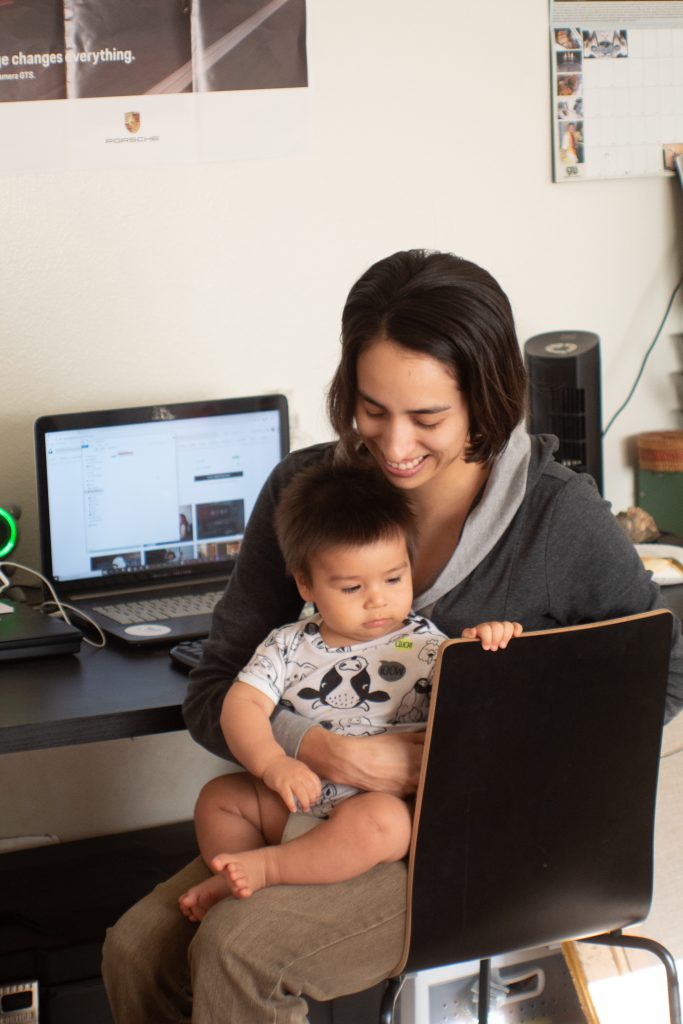 As the digital workplace and classroom may very well be our reality for the next while, we asked founders if they have tips to offer other parents for improving work-life balance and family dynamics in the current environment. Parents also explain that amidst the pandemic, they have seen some benefits to keeping the family at home – and have been embracing the silver linings that have come with it.
As the digital workplace and classroom may very well be our reality for the next while, we asked founders if they have tips to offer other parents for improving work-life balance and family dynamics in the current environment. Parents also explain that amidst the pandemic, they have seen some benefits to keeping the family at home – and have been embracing the silver linings that have come with it.

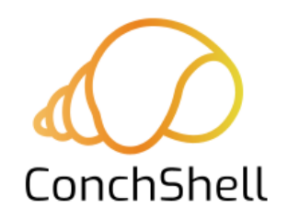

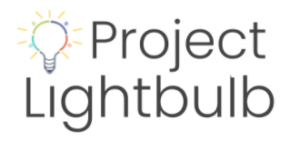
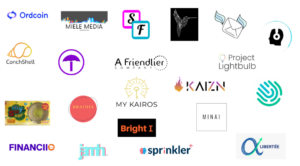



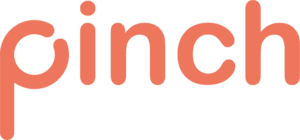 Why did you start Pinch?
Why did you start Pinch? Can you tell me more about Pinch’s time at the DMZ?
Can you tell me more about Pinch’s time at the DMZ?
 What’s next for Pinch?
What’s next for Pinch? Ashu, what are you most looking forward to in the future?
Ashu, what are you most looking forward to in the future?

